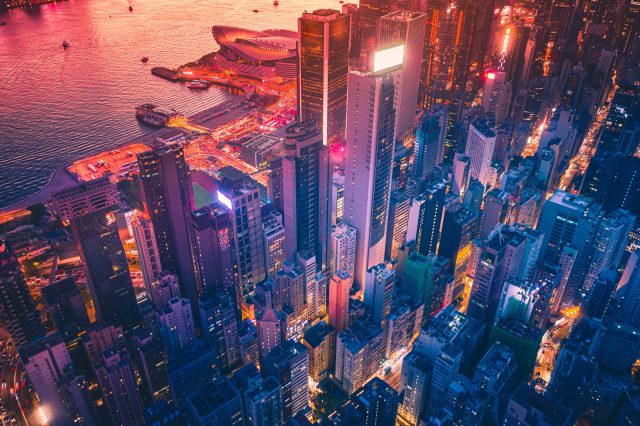Asia-Pacific shares spike as China reopens border
Chinese stocks soared in the wake of border restrictions being lifted between Hong Kong and mainland China for the first time in almost three years, signalling hope for drinks brands in the market.

Budweiser Brewing Company is one of many firms to see a rise following the long-awaited end of Covid-based travel restrictions in China this week. The beer giant experienced a 0.37% uptake in Hong Kong’s first trading session after the city resumed quarantine-free travel between Hong Kong and mainland China.
Shares of Alibaba, one of the world’s largest retailers and e-commerce companies, also leapt by 5.8% at the open in Hong Kong. The online retailer sells beer, wine, spirits and liqueurs.
According to CNBC, Hong Kong’s Hang Seng Index gained 1.77% in its final hour of trade on the first day following the reopening, while the Shanghai Composite (SSE) crept up by 0.58%. South Korea’s KOSPI (Korea Composite Stock Price Index) climbed by 2.68%. Japan’s markets were closed to observe a public holiday.
The MSCI Asia Pacific index hit a high of 162.33 on Tuesday 10 January – roughly 21% higher than its 52-week low of 133.93 reached on 24 October, according to Refinitiv data.
The spur of optimism will come as a relief for drinks companies around the world who have seen their trading severely hampered by a series of successive lockdowns in the Asia-Pacific region. However, companies are being urged to exercise caution as risks are likely to linger.
Partner Content
Saxo Markets, a global leader in online trading and investing, wrote in a note on Tuesday: “The rally has been fast and furious, so it is only natural to expect some profit-taking” but tampered this by adding that “the market is getting too excited about growth too early as a lot of uncertainty persists.”
Regardless, Saxo said there is room for Asian markets to outperform this year.
In November 2022, new Covid restrictions sparked street protests across China, compounding many months of misery caused by Beijing’s determination to stamp out the pandemic at any cost.
In Shanghai, residents were required to do frequent, time-consuming Covid nucleic acid tests in order to gain access to restaurants, bars, department stores, supermarkets, wet markets, hair and beauty salons, and massage shops.
At one stage last year, full or partial lockdowns were in place in 45 Chinese cities, impacting a quarter of the population (more than 300 million people) and around 40% of the economy.
Related news
Castel Group leadership coup escalates
For the twelfth day of Christmas...
Zuccardi Valle de Uco: textured, unique and revolutionary wines




